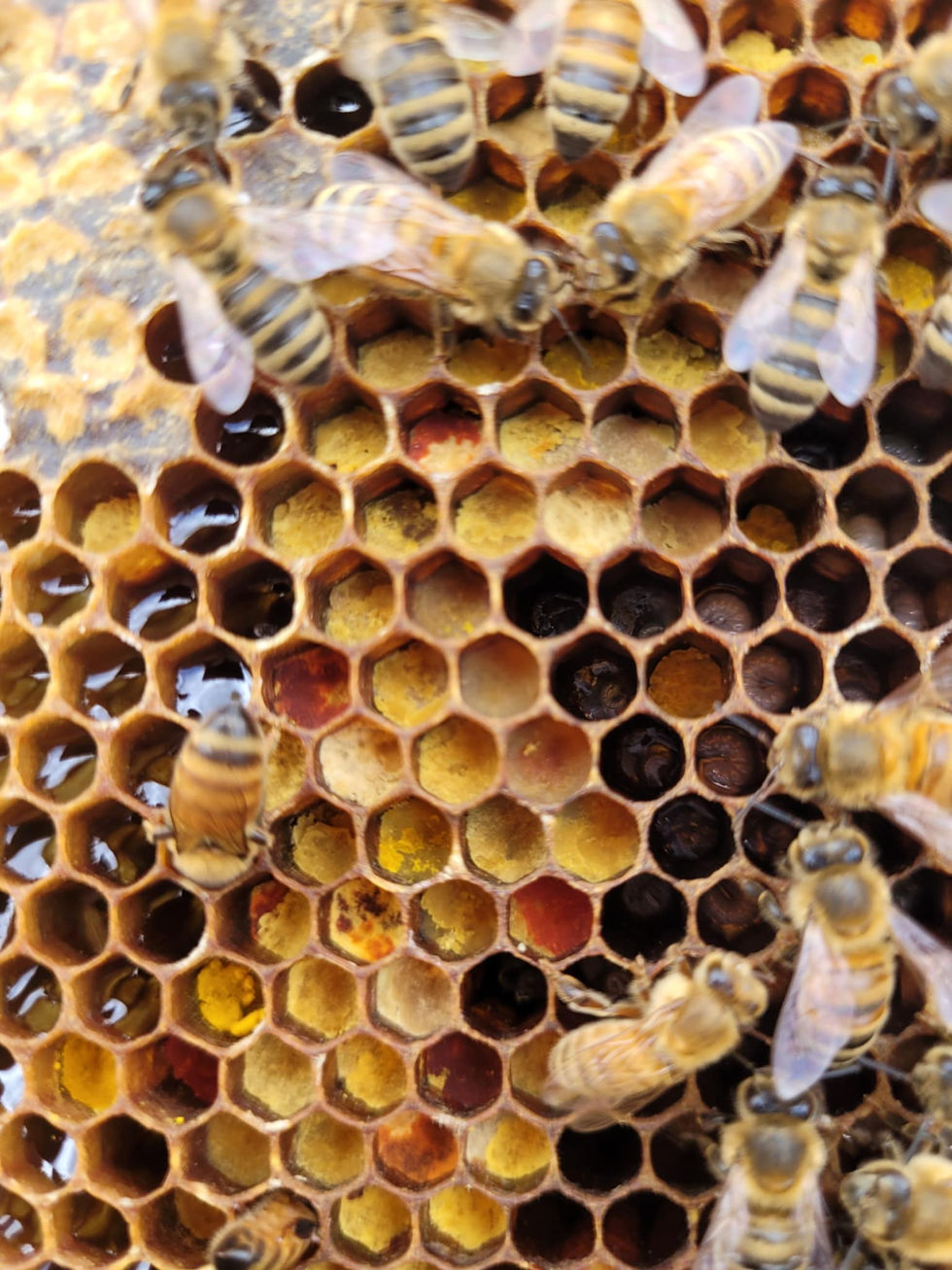
Raising Quail
- Elizabeth McKeough
- Jul 4, 2025
- 4 min read
Raising quail has gained popularity among poultry enthusiasts and small-scale farmers. They are known for their delectable eggs and relatively low maintenance compared to chickens. However, the journey of hatching and raising quail is not without its challenges. This essay will discuss the difficulties of keeping quail chicks alive and the advantages of raising these birds, including their cleanliness, quiet nature, and valuable eggs.
Hatching quail eggs is an elaborate process that requires careful planning and execution. Quail chicks, known as chicks, are very vulnerable during their early stages of life. They are prone to a multitude of threats, which can lead to high mortality rates among them. These little birds are easily susceptible to drowning. A shallow water source is essential, yet it must be shallow enough to prevent drowning. This is a significant concern for those new to quail farming. Quail chicks tend to be curious and explorative, often leading them into perilous situations.
Choking is another serious issue that quail farmers must navigate. The chicks are small and can easily ingest inappropriate objects or food that can block their airways. It is vital to ensure that their food is in appropriate sizes and designed for young quail to mitigate this risk. Furthermore, quail chicks are extremely sensitive to temperature fluctuations. They can easily freeze in colder conditions or overheat under excessive warmth. This sensitivity requires farmers to provide controlled environments with proper heating or cooling systems. The need for close monitoring of temperature and humidity levels adds to the extensive workload demanded by quail farming.
Despite these challenges, raising quail presents numerous advantages that make them worthwhile as a poultry option. Quail are known for their cleanliness compared to chickens. They have a natural instinct to maintain their living area. They are less likely to create unnecessary mess, which makes their upkeep less stressful for farmers. This quality makes them an appealing option for those interested in smaller agricultural setups where cleanliness is a priority.
Moreover, quail are significantly quieter than chickens. Most suburban or urban agricultural enthusiasts choose quail for this reason. The noise from chickens can sometimes lead to complaints from neighbors. Quail, by contrast, produce soft cooing sounds. Their quiet nature allows farmers to maintain peaceful environments, making them more suitable for densely populated areas.
The culinary appeal of quail eggs cannot be overlooked. They are considered a delicacy in many parts of the world. Known for their rich taste and unique texture, quail eggs are often used in gourmet dishes. They contain higher nutritional density than chicken eggs, making them attractive in health-conscious culinary circles. Some chefs celebrate their delicate flavor and aesthetic beauty, often using them to garnish or elevate dishes. Such culinary value has propelled quail farming into niche markets, where raised interest is leading to increased production.
In recent years, the popularity of quail as a sustainable food source has grown. As people seek to reduce their environmental footprint, quail farming has emerged as a viable alternative. Quail require less space and resources compared to chickens, making them suitable for urban farming. Researchers and advocates have increasingly highlighted how quail can efficiently contribute to food security while minimizing environmental impacts. This trend represents a promising direction for sustainable agriculture.
While influential individuals in agriculture and gastronomy have contributed to the resurgence of quail farming, various perspectives also exist regarding its future. Activists emphasize the welfare of the birds and advocate for ethical farming practices. They push for maintaining high standards in the treatment of quail, ensuring welfare protocols to prevent high mortality rates and advocate against excessive breeding practices that can compromise birds' health.
An analysis of the future of quail farming indicates that technological advancements will likely enhance the experience for farmers. Innovations in incubation technology, feeding practices, and overall management strategies can further reduce the mortality rates among quail chicks. The introduction of smart farming solutions, such as automated monitoring systems for temperature and humidity, holds the potential to simplify the challenging aspects of quail farming. Additionally, as consumer demand for quail eggs grows, there is a significant opportunity for small-scale farmers to establish profitable ventures.
Another relevant issue is the potential market for organic and free-range quail farming, which could elevate demand for sustainably raised quail. As consumers become increasingly conscientious about their food sources, farmers may find numerous opportunities in catering to such demands. The balance between creating sustainable farming practices and addressing the associated challenges will be vital.
In conclusion, while raising quail encompasses various difficulties, such as high mortality rates among chicks due to drowning, choking, temperature regulation, and environmental factors, the rewards can outweigh these challenges. Their cleanliness, quiet demeanor, and culinary value make them an attractive option for many. Looking ahead, advancements in technology and rising consumer interest in sustainable practices will continue to shape quail farming. With the right approach, both the challenges and benefits can be harmonized, paving the way for the successful rearing of quail. Quail farming stands as a testament to the complexities of agricultural practices and the potential of small-scale, sustainable endeavors in modern food production.



Comments